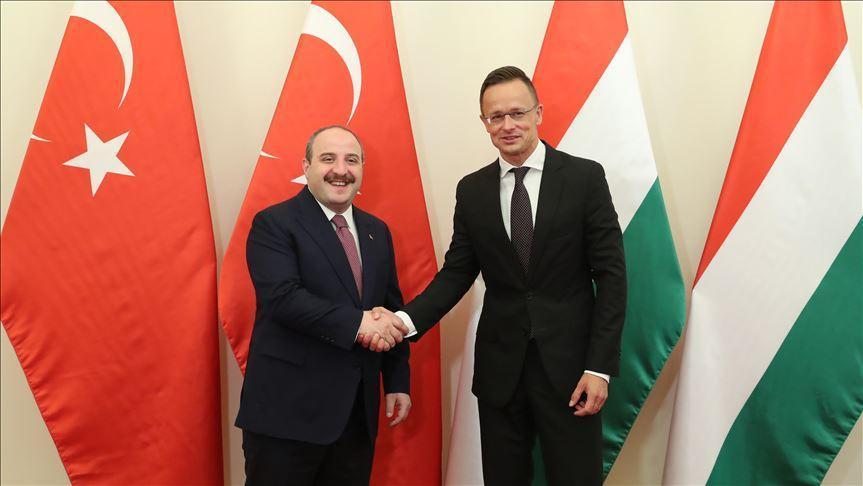Turkey presses Hungary on lifting transport quotas
BUDAPEST-Anadolu Agency

Turkey is urging Hungary to lift transportation quotas in order to boost trade and benefit consumers, Turkey's industry and technology minister said on June 26.
"We maintain all our efforts to lift the transport quota," Mustafa Varank told the Turkey-Hungary Business Council meeting in Budapest, Hungary's capital.
Saying that the limits on the number of transportation permits issued act like a kind of non-tariff barrier to trade, Varank said: "Lifting the quotas will not only facilitate Turkish goods' access to EU markets but also enable European consumers to access more diverse products easier and cheaper."
Varank highlighted that in 2018 Turkish exports to Hungary rose 6.6% year-on-year to $1.1 billion, while imports from the country dropped 7.8% to $1.39 billion during the same period.
Citing the $6 billion bilateral trade target set last October by Turkish President Recep Tayyip Erdoğan and Hungarian Prime Minister Viktor Orban, Varank said:
"Considering our potential, we can easily reach our bilateral trade target in the coming days."
He also urged Hungarian business circles to invest in Turkey.
Adnan Polat, head of the Foreign Economic Relations Board's (DEIK) Turkey-Hungary Business Council, praised how Hungary has supported Turkey's EU membership bid in the face of pressure and resistance.
"Hungary is considered a gateway to EU markets for Turkish businesspeople thanks to its strategic location, developed infrastructure, qualified human resources, and attractive incentives system for investors," said Polat.
Hurdles to trade
Turkey does nearly half of its total foreign trade with the EU, and some 75% of goods are transported via roads.
But Turkish-registered goods vehicles that enter the EU each year at the Hungarian, Austrian, and Bulgarian borders face administrative hurdles.
These include quota limits on the number of transport permits that can be issued to Turkish trucks by an EU member state, with demand exceeding the number of permits available.
It is estimated that liberalization of transportation could add €3.5 billion to bilateral trade volumes.
















